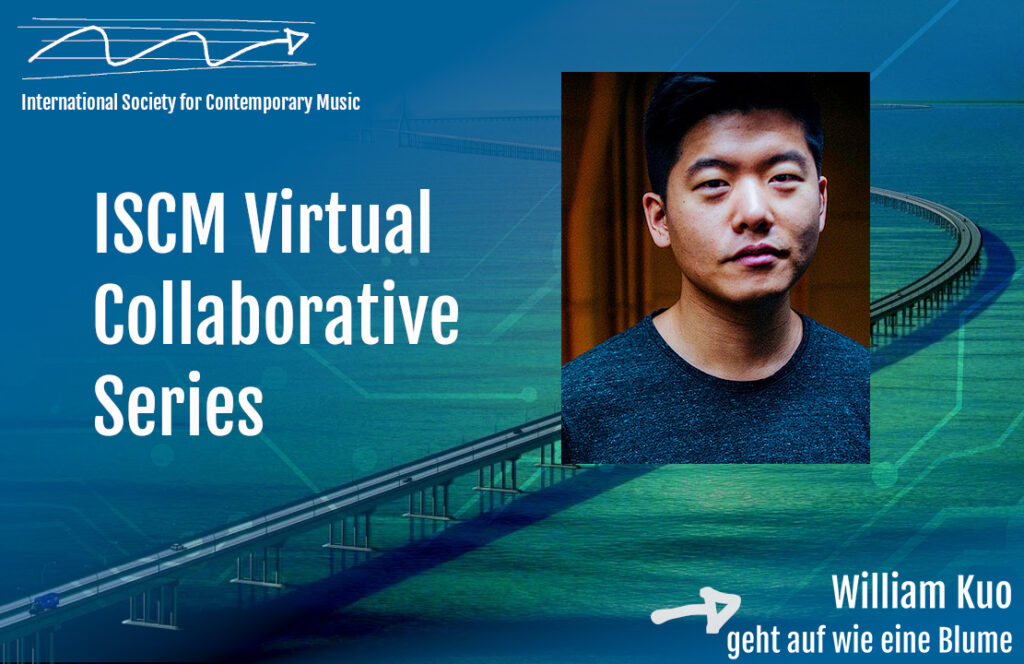William Kuo: geht auf wie eine Blume

William Kuo is a Canadian composer of experimental music. His music has been presented at Gaudeamus Muziekweek (Netherlands), Bludenzer Tage zeitgemäßer Musik (Austria), Cluster New Music Festival (Winnipeg, Canada), Festival Voix Nouvelles (France), and ManiFeste Festival (France). Notable collaborators in recent years include TAK Ensemble, NIKEL, Quasar Quatuor de Saxophones, Ensemble Klang, Asko|Schönberg, Ensemble Multilatérale, Le Nouvel Ensemble Moderne, Ensemble InterContemporain, Ensemble Paramirabo, Orchestre Philharmonique de Radio France, Heather Roche, Eva Zöllner, Juliet Fraser, and Juliette Adam. He received his Bachelor’s in Composition from McGill University in 2013, under the guidance of Brian Cherney, Chris Paul Harman, and John Rea. In 2015, he earned his Master’s in Composition from the Conservatoire de musique de Montréal, where he received valuable insight from Michel Gonneville, Serge Provost, and Louis Dufort. In 2018-19, he participated in the Cursus computer music program at IRCAM in Paris, France. He was a finalist for the Gaudeamus Award in 2018.
Kuo’s geht auf wie eine Blume is a 2016 composition for Pierrot ensemble (flute, clarinet, violin, violoncello, and piano) with optional amplification. According to the composer: “The title, geht auf wie eine Blume, comes from the first half of Martin Luther’s German translation of Job 14:2. In English, the full verse reads, ‘They spring up like flowers and wither away; like fleeting shadows, they do not endure.’ In 1534, Luther published a complete translation of the bible into German, believing that people should be able to read it in their own language. Analogously, this piece is a translation of my musical influences into a language I have yet to fully comprehend. This particular language comprises of sounds that are fragile and ephemeral, qualities that recall the relentless passing of time.”
